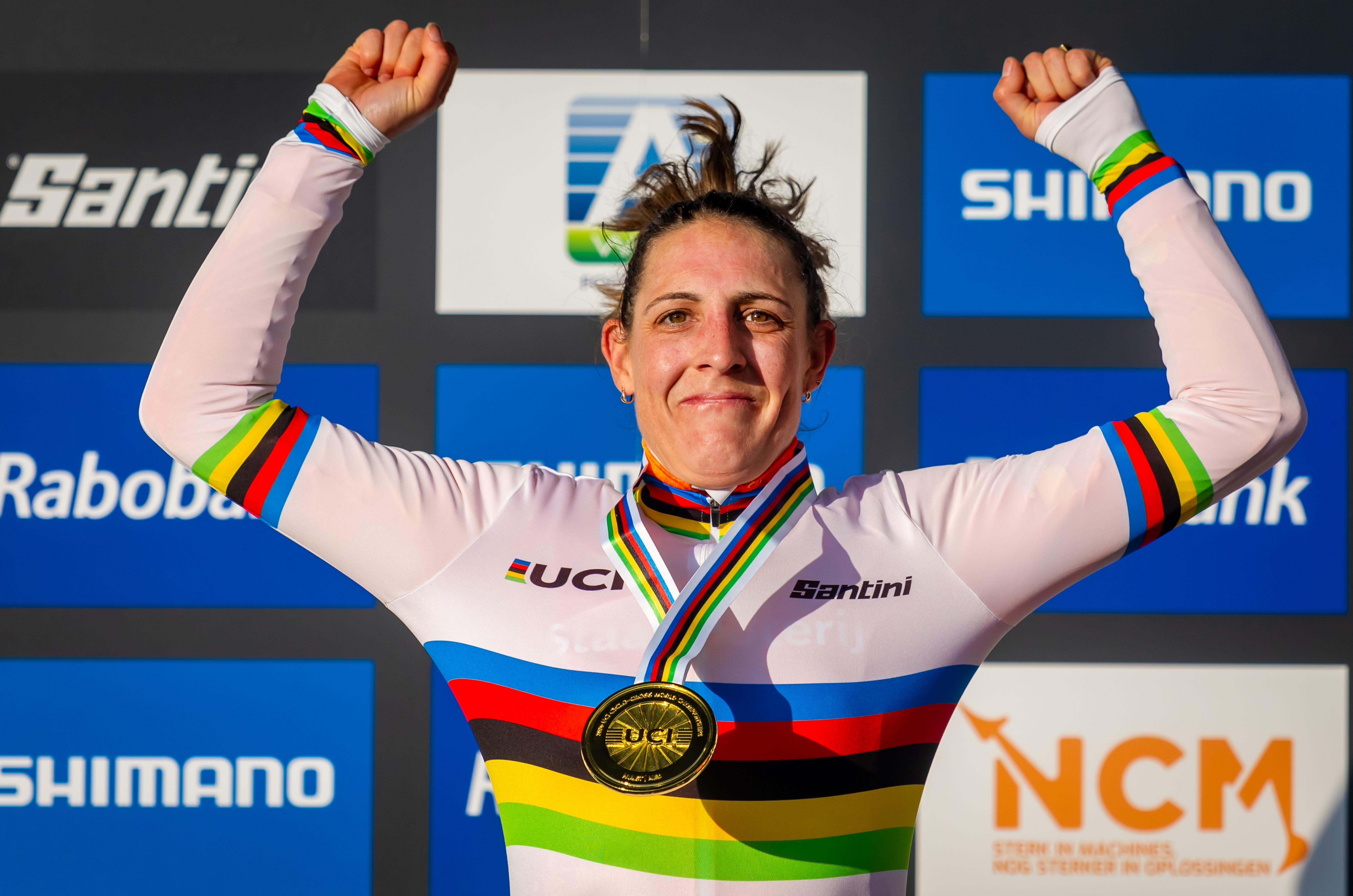'Septemberitis', stage 22 partying and breakfast at 10am – Thomas De Gendt's best, worst and most unexpected things about the Vuelta a España
In his latest column, Thomas De Gendt takes us inside the Vuelta, and what Remco Evenepoel has to do with it
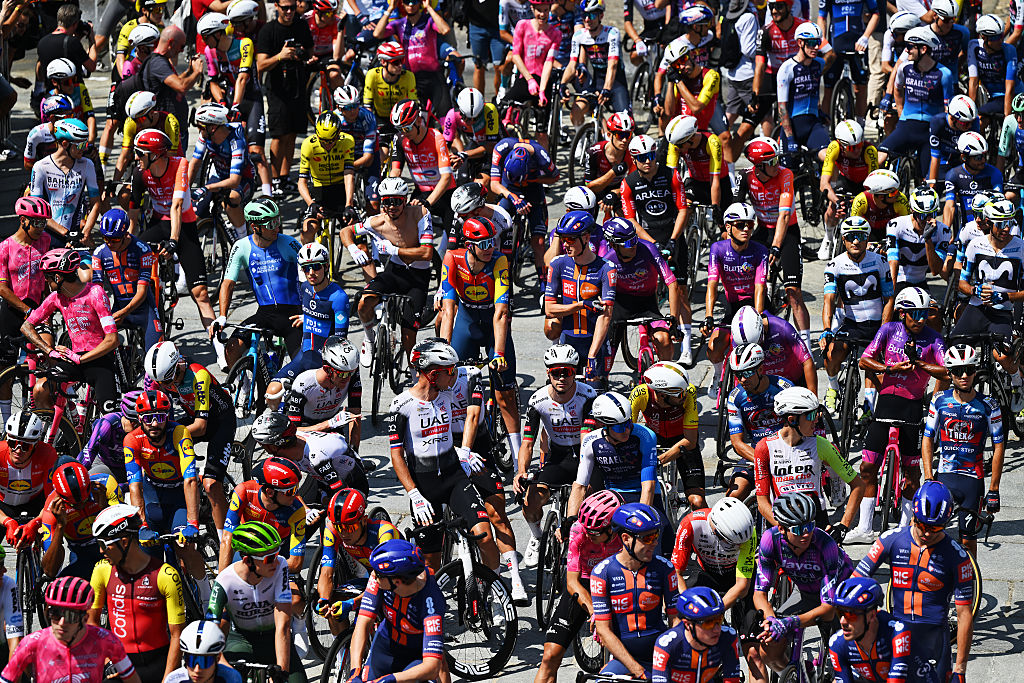
In his latest Cyclingnews column, now-retired pro Thomas De Gendt takes us inside the good, the bad and the downright unexpected things that come with the Vuelta a España.
A finisher of 10 editions of the Spanish Grand Tour, De Gendt knows a little something about what makes the Vuelta unique – in good ways and bad.
Winner of one stage and the King of the Mountains jersey in Spain during his career, this time of year represents lots of positive memories for De Gendt, but as you'll find out, there are lots of downsides to the late-summer Grand Tour, too.
Read on for De Gendt's humorous and insightful breakdown of life at the Vuelta a España.
The Good (in no particular order)
1. Calmer than France, better-organised than Italy
One of the main attractions of the Vuelta is it isn't as stressful as the Tour de France and there's none of the chaos you get in the Giro d'Italia. The Vuelta is still serious racing, though – even if it's less serious than the Tour.
2. Getting up at 10am
The latest race content, interviews, features, reviews and expert buying guides, direct to your inbox!
For somebody like me that has two kids, both of whom need to wake up at 6.30am every morning on a school day, sleeping till 10 in the morning thanks to the Vuelta's late starts is a real luxury.
3. Warm weather
Most of the time the weather's good, sometimes a bit too warm, but I can't recollect that many cold, rainy days on the Vuelta and I rode ten of them in total. OK, there were times in the Pyrenees when I was cold because we had to descend from 2,000 metres altitude to the team buses after a finish, but that was pretty much it.
4. Stage 22
Assuming you're not ill or injured, the biggest challenge of the Vuelta is motivating yourself to stay through it all when things aren't going so well. I consider it a great honour to finish a Grand Tour because it's not easy to stay healthy and motivated for three weeks and you'll always have a day that you don't feel like racing.
But if it was always a battle to get through to the final day of any Grand Tour, that's specially the case in the Vuelta. However, one way round this risk of demotivation is that you promise yourself a nice evening out after the final stage of the race, or as we called it in the peloton: 'stage 22'.
'Stage 22' happens in Madrid, obviously, and it potentially goes on the whole night. We certainly had a few parties there, as most of the time for me the Vuelta was the final goal of the season, so there was definitely a need for a party.
Fortunately in Madrid on a Sunday evening there are still lots of things to do and still plenty of clubs that stay open until late – and knowing that they stayed open was one of the reasons why so many of us in the Vuelta peloton tried as hard as possible to get to Madrid and stage 22.
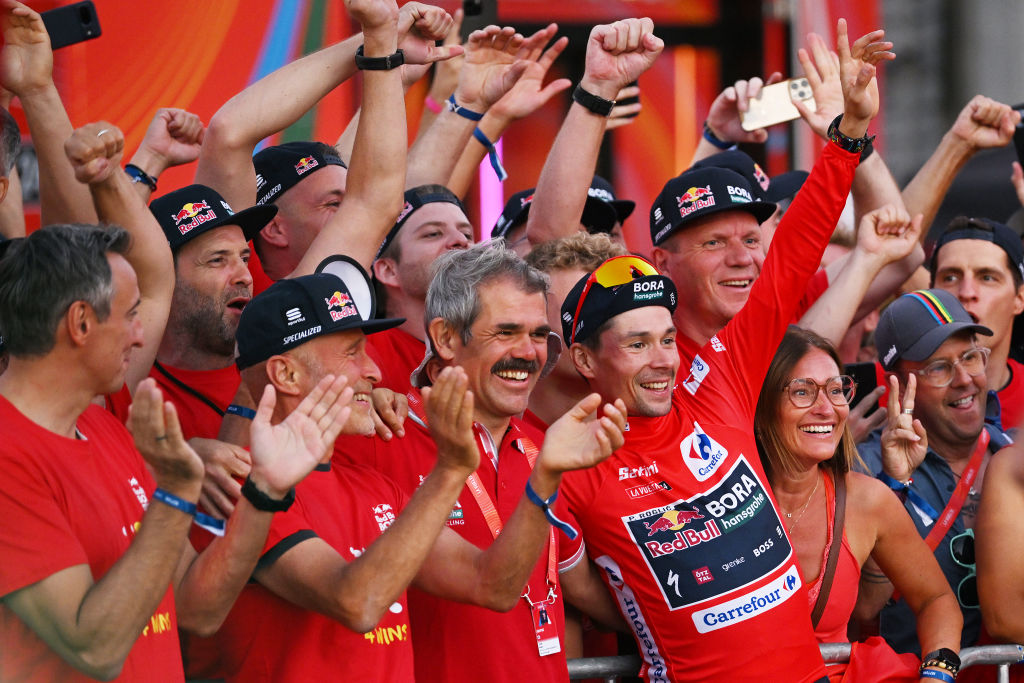
5. The 2018 Vuelta a España mountains classification victory
I'd been aiming for a Grand Tour mountains classification for my entire career and I finally got it in 2018 in the Vuelta. It's nice to have the mountains jersey from smaller races but in Grand Tours it's really something special.
The star Belgian for getting mountains classifications is, of course, [1976 Tour de France champion] Lucien Van Impe, who won the Tour de France polka-dot jersey no less than seven times. However, Van Impe never won the mountains jersey in the Vuelta and I was actually the first Belgian to do that. Remco Evenepoel then did the same afterwards [in 2023], so now Belgium has two Vuelta KoM winners. However, I also have one of Remco's Vuelta KoM jerseys in my house, so I can safely say that right now I'm the only person in the world with both of those mountains jerseys – mine and his – in the same collection...
The reason why I was so keen to get the mountains jersey in the Vuelta was firstly that I always wanted, to wear some kind of classification jersey in all the races I did, whether it was the points, the mountains or whatever. For the sponsors, having a classification jersey is invaluable, and in the mountains ranking as leader you can put the polka dots symbols on your helmet, on your glasses and so on.
I took this so seriously that I still have the route books from all the Tours where every day I'd write down every day the total number of points you could grab and which stages it was important to be in the break if I wanted to have a chance of winning. I did the same things for the Vuelta, making sure I was in the right breakaways to take the mountains jersey or at least wear it for a few days.
In the 2018 Vuelta I was in a break seven times, and most of the important stages, I was up there. It was very tough all the way through to the final. I took over in the mountains lead on stage 17 from Luis Angel Maté, and then I remember Bauke Mollema could still take it away from me if he had got first or second on the last climbs of the Vuelta on the very last mountain stage in Andorra.
I was very stressed. So I was constantly asking my DS Mario Aerts - "Is he dropped yet, is he dropped yet?" Finally, though, Enric Mas got the win in Andorra ahead of Miguel Angel López on the Col de la Gallina, and I got that mountains jersey for my collection.
The Not So Good (in no particular order)
1. The time of year
The time of the season is always difficult for riders, we call it 'Septemberitis'. You just don't enjoy cycling any more in the month of September, especially when you have to go out training and the weather is starting to turn bad. You lack motivation and you can feel this in the Vuelta a little bit. When the pressure is off, you get to stage 18 or stage 19 then you can really feel Septemberitis kicking in.
There should really be a little bit more pressure in this race for people to stay in focus for the whole three weeks, particularly as it's already a long season for most of the riders. If you are racing well that makes it a bit easier. But if it's the end of the season and you are not going that great, you're not on GC or fighting for stage wins, then you're dragging yourself through that third week to Madrid. Which is why, again, thinking about stage 22 is a big help.
2. The late dinners
The flipside of getting up at 10am is that the Vuelta starts would often be at two in the afternoon, so the finishes are equally late, and usually when we had dinner it'd be 10 in the evening. You're at the table for at least one hour and by the time you're in bed it's midnight, then you can't sleep because your stomach is so full. That was something I hated.
They could have had the starts a little bit earlier. Waking up at 9 and starting at 12 would have been fine, then we'd have had got to dinner two hours earlier, and my stomach wouldn't have still been full at gone midnight.
3. The heat
This year they should be fine, the race is above Madrid all the way through to the finish so, even it's warm sometimes, but it won't be any way as extreme as last year where we had 40 degrees average on some days and there was nothing you can do about it. Specially in the south, you're on big roads, with no shelter, and you just have to endure it. Not so healthy at all.
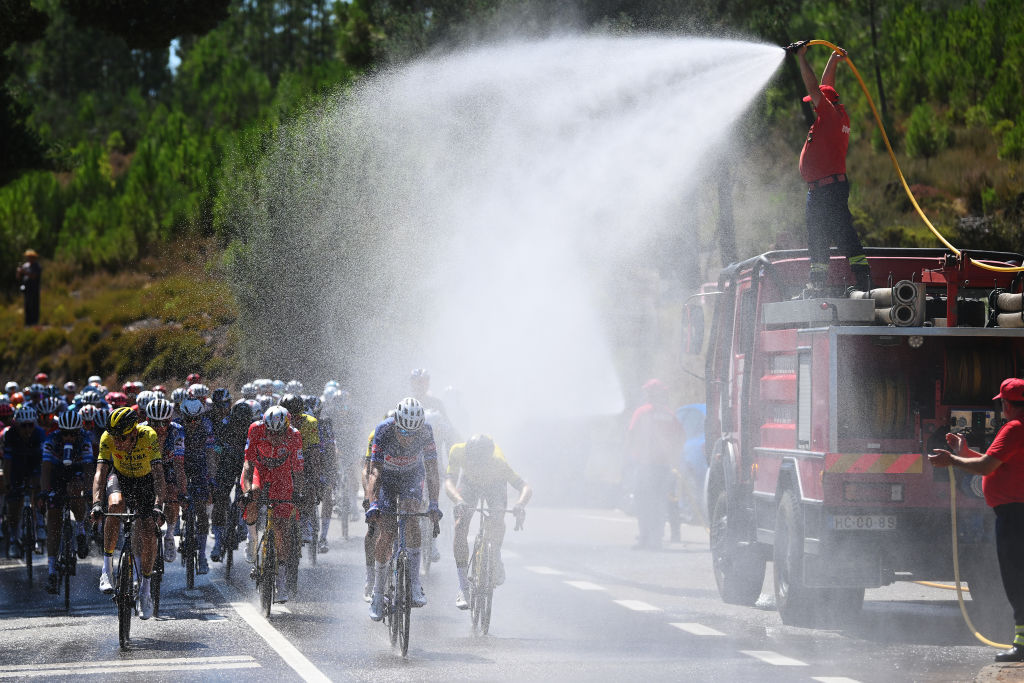
The unexpected
1. Getting a Vuelta stage win in 2017
If my win on the Ventoux in the Tour de France was the strangest of my career, my victory in the 2017 Vuelta a España in Gijon goes down as one of my most unexpected. I wasn't in great shape, but somehow I did it.
Getting in the break that day was easy, it was one of the days you know that it was going to be for a break, because the day after was the Angliru and the day before was hard as well. Plus we had already won the previous day with Sander Armée and we'd had two stage victories with Tomasz Marczyński so the pressure was definitely off.
So we could start the stage with an open mind, we didn't really have to be in the break, but I wanted to prove that I was in a good condition because I didn't have that much to show in the Vuelta. I immediately got in a good group and then another bunch including Romain Bardet got across to us and we had a great lead, maybe around 15 minutes to the peloton, so we knew we would fight for the finish.
I was not at my best, just following as best I could, but in fact maybe that meant I was in better shape to be there in the final. So first [Ivan] García Cortina, who was a local rider, went for it alone with about 50 kilometres to go. Then on the last climb, maybe 12 kilometres from the finish, Bardet got across, next a group with Nicolas Roche and [Jarlinson] Pantano got over too, and lastly a group with Bob Jungels and me, made it up there with three kilometres left.
I followed the splits, got on Roche's back wheel which was a good idea because he was going for a good GC, he provided a good leadout for the sprint and I was the fastest of eight or nine riders. It was one of those days that you don't feel good enough to win, but in the end you still do, just because you had to save energy to stay in the right group and you have the freshest legs.
This was my most unexpected win. I didn't think it was going to happen, I'd just done the Tour and I'd been in the break 11 times so I was pretty fatigued and in the Vuelta I'd already been in some breakaways, but then I was only able to stay there and not do much. But with no pressure to win and no interference from the team car as a result, just bottles and time gaps, I could do my own race without anybody constantly on the radio and telling me from the car to 'close the gap, close the gap' which would have led to me blowing. That lack of pressure really helped, and finally I got the win.
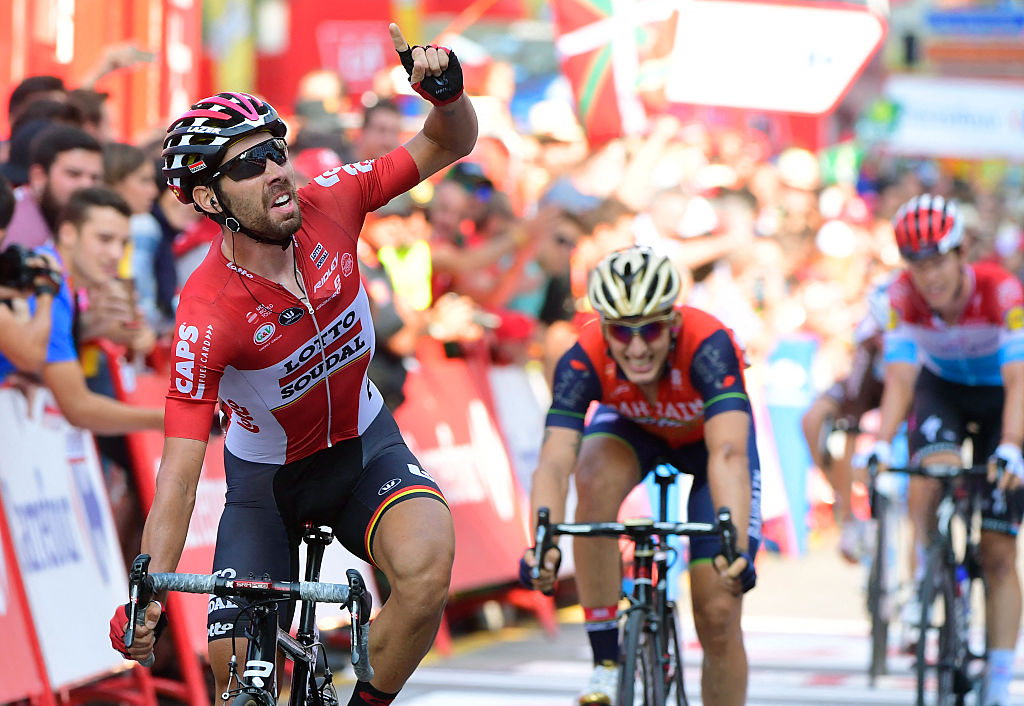
Subscribe to Cyclingnews for unlimited access to our 2025 Vuelta a España coverage. Our team of journalists are on the ground from the Italian Gran Partida through to Madrid, bringing you breaking news, analysis, and more, from every stage of the Grand Tour as it happens. Find out more.
You must confirm your public display name before commenting
Please logout and then login again, you will then be prompted to enter your display name.
